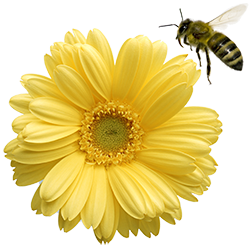
How to Stay Healthy in the Spring by Janell Pierce
 Ah, springtime. There’s something simply magical about the season, yet again, there’s also the dark side of spring – allergies and colds. We all know the components to a healthy lifestyle are proper diet, exercise and sleep. The spring season can bring a few setbacks to maintaining your well-being. Two of the most common illness during the season are hay fever and spring colds.
Ah, springtime. There’s something simply magical about the season, yet again, there’s also the dark side of spring – allergies and colds. We all know the components to a healthy lifestyle are proper diet, exercise and sleep. The spring season can bring a few setbacks to maintaining your well-being. Two of the most common illness during the season are hay fever and spring colds.
Hay fever, also known as allergic rhinitis, is a common condition that shows signs and symptoms similar to a cold with sneezing, congestion, runny rose and sinus pressure. It is caused by airborne pollen or dust which inflames the mucous membranes of the eyes and nose. It’s usually seen as a problem that arises in the summer, however pollen that is present in the air as early as March can have an adverse effect on people. If your hay fever isn’t too severe, over-the-counter medications may be enough to relieve symptoms. For worsening symptoms, contact your doctor for prescription medications.
It’s nearly impossible to avoid all allergens, but you can greatly reduce your symptoms by limiting exposure to them. A couple of tips include: not hanging your laundry outside (pollen can stick to it), vacuum weekly for dust, stay indoors on dry, windy days and use allergy-proof covers on mattresses, box springs and pillows. The best thing to do is try and lessen your exposure to the allergens that cause your symptoms. Take allergy medications before you’re exposed to allergens, of course as directed by your doctor.
Colds can hit your any time of the year, but come springtime it’s more common than not. Springtime colds linger for an average of 3-7 days, though some symptoms can last up to 2 weeks in some people. Research shows that stress, lack of sleep and allergens lowers your immune system, raising your chances of getting infected by a cold virus. Here are a few tips to reduce your risk of getting a springtime cold:
- Washing your hands often with soap water or sanitizer
- Stay away from people who are sick – it can spread in close contact
- Avoid touching your nose, eyes, and mouth with unwashed hands – viruses can enter the body this way!
- Get lots of sleep, eat healthy and exercise
There’s no cure for allergies or colds. To feel better, you should get lots of rest and drink plenty of fluids. Over-the-counter medications help ease symptoms, but in the end it’s up to you to make the right choices to stay healthy.
Source: https://www.pgeveryday.com/health-wellbeing/healthy-living/article/how-to-stay-healthy-for-spring
The informa tion provided is for general interest only and should not be misconstrued as a diagnosis, prognosis or treatment recommendation. This information does not in any way constitute the practice of medicine, or any other health care profession. Readers are directed to consult their health care provider regarding their specific health situation. Marque Medical is not liable for any action taken by a reader based upon this information.
tion provided is for general interest only and should not be misconstrued as a diagnosis, prognosis or treatment recommendation. This information does not in any way constitute the practice of medicine, or any other health care profession. Readers are directed to consult their health care provider regarding their specific health situation. Marque Medical is not liable for any action taken by a reader based upon this information.
